- About Us
- Columns
- Letters
- Cartoons
- The Udder Limits
- Archives
- Ezy Reading Archive
- 2024 Cud Archives
- 2023 Cud Archives
- 2022 Cud Archives
- 2021 Cud Archives
- 2020 Cud Archives
- 2015-2019
- 2010-2014
- 2004-2009
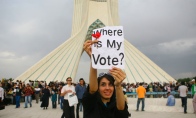 |
Ezy Reading: |
It certainly isn’t a recent development in the mass media to see items that are arguably ‘newsworthy’ be replaced on the front pages of our newspapers and in the lead stories of television and radio news programs by sensationalist, lightweight fodder that isn’t ‘real’ news and doesn’t necessarily inform of us of the true, important matters of our world that bear reporting.
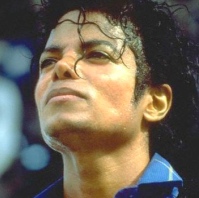
The ceaseless, unending coverage surrounding the death of Anna Nicole Smith is one black stain on the recent history of the American mass media that immediately comes to mind, but before Anna Nicole Smith came countless names like O.J Simpson, Jim Bakker, Patty Hearst, Eddie Fisher & Elizabeth Taylor, Marilyn Monroe and Fatty Arbuckle.
Of course determining what is exactly newsworthy is a terribly subjective matter, and what is news in one time or place or for a particular culture may not be to another. Above all, news is a business and, like it or not, profit and demand dictate many of the decisions among the major media players in the world today. In an era where these same news organizations are now competing more than ever with literally hundreds of supermarket tabloid magazines and the monster that is celebrity gossip site TMZ.com, matters become even further complicated.
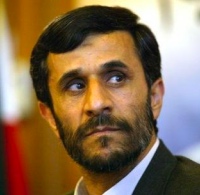 This also isn’t to say that the above names weren’t necessarily newsworthy in some respect, or that I mean to be insensitive to the victims that were present in many of their stories, but the saturation with which they dominated the news of their respective days unquestionably helped to bury other matters which may -again subjectively- have merited closer scrutiny. A 2007 Think Progress report noted that in the thick of coverage of Anna Nicole Smith’s death, CNN referenced the starlet 522% more frequently than it did Iraq.
This also isn’t to say that the above names weren’t necessarily newsworthy in some respect, or that I mean to be insensitive to the victims that were present in many of their stories, but the saturation with which they dominated the news of their respective days unquestionably helped to bury other matters which may -again subjectively- have merited closer scrutiny. A 2007 Think Progress report noted that in the thick of coverage of Anna Nicole Smith’s death, CNN referenced the starlet 522% more frequently than it did Iraq.
The recent electoral protests in Iran have been undoubtedly fueled by the Internet –and particularly ‘the Twitter’ phenomenon’- more than any other significant political event in recent memory bar, perhaps, the role Matt Drudge played in breaking news of a certain extra-marital affair involving former President Bill Clinton whose story was going to be quashed by Newsweek (newsworthy, sure, but an event that, looking back in context, pales in comparison to matters in Iraq & Afghanistan that later dogged the Bush administration).
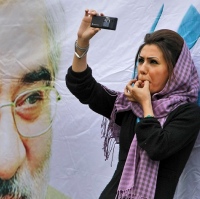
At the same time, the impact of the Internet and mass ownership of cell phones aside, the considerable global news coverage of developments in Iran following Mahmoud Ahmadinejad’s re-election undoubtedly helped to fuel, encourage and prop up the efforts of those hoping to overthrow the current regime.
Upon the death of Michael Jackson on June 25th of this year it became almost immediately impossible to find thorough coverage of Iran in just about any news media outlet. Even the venerable BBC got in on the act, and faced allegations from angry viewers and listeners of devoting more time to Jackson than even in previous coverage of 9-11 and the 7-7-05 London bombings (in the week ending with Jackson’s funeral, the BBC had received over 700 complaints regarding their non-stop coverage of the singer’s death).
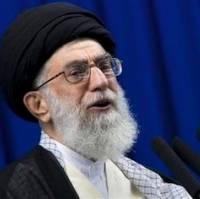
Jackson was a superstar, an iconic and influential musician whose passing was significant in the history of American and global pop culture (and yet it must be said, it would have been encouraging and timely to also see more measured mention made alongside memorials of Jackson of so many of the individuals who had broken down barriers and played an important role in paving the way for African-American entertainers in the years prior to his emergence –names like James Brown, Marvin Gaye, Jimi Hendrix and Ella Fitzgerald received scant comparative citation).
Moving into the week of June 22nd –the third week of coverage of the protests in Iran- coverage had declined in part due to the significant crackdowns taking place in that country which were helping to suffocate the protester’s efforts as well as their abilities to get news of their activities out to the rest of the world. At the same time, by the week’s end, 24-hour coverage of Michael Jackson in the mainstream media had effectively buried the bulk of fresh news from Iran. One week later, the Pew Research Center’s Project for Excellence in Journalism (PEJ) reported that coverage of Jackson in the United States filled 30% of the airtime on network news and 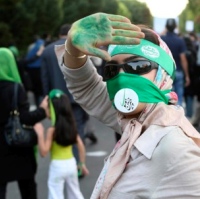 28% on cable news. For the week of June 29-July 5, while coverage of Jackson had dropped to 17%, news from Iran was now receiving a mere 4% of coverage, down 19% from the previous week.
28% on cable news. For the week of June 29-July 5, while coverage of Jackson had dropped to 17%, news from Iran was now receiving a mere 4% of coverage, down 19% from the previous week.
It doesn’t take a great leap forward to consider that, should the Iran protest movement ultimately fail, in five or ten years time we may well look back on the crisis and consider that one of the contributing factors for failure was, indeed, the
shift of the media –and thus the eyes of the world- away from Iran and on to Michael Jackson. This speaks greatly of the average media consumer’s preferred diet of coverage. Michael Jackson may have been one of the most famous people in the world today and his death warranted reporting, but there are far higher stakes at play here that will have far larger, more significant historical consequences.
Sources:
http://thinkprogress.org/2007/02/09/anna-nicole-media-embarassment/
www.upi.com/Entertainment_News/2009/07/08/BBC-gets-complaints-over-Jackson-coverage/UPI-34051247069265/
www.journalism.org/index_report/pej_news_coverage_index_june_29_july_5_2009
Ezy Reading is out every month. Send your comments to feedback@thecud.com.au
